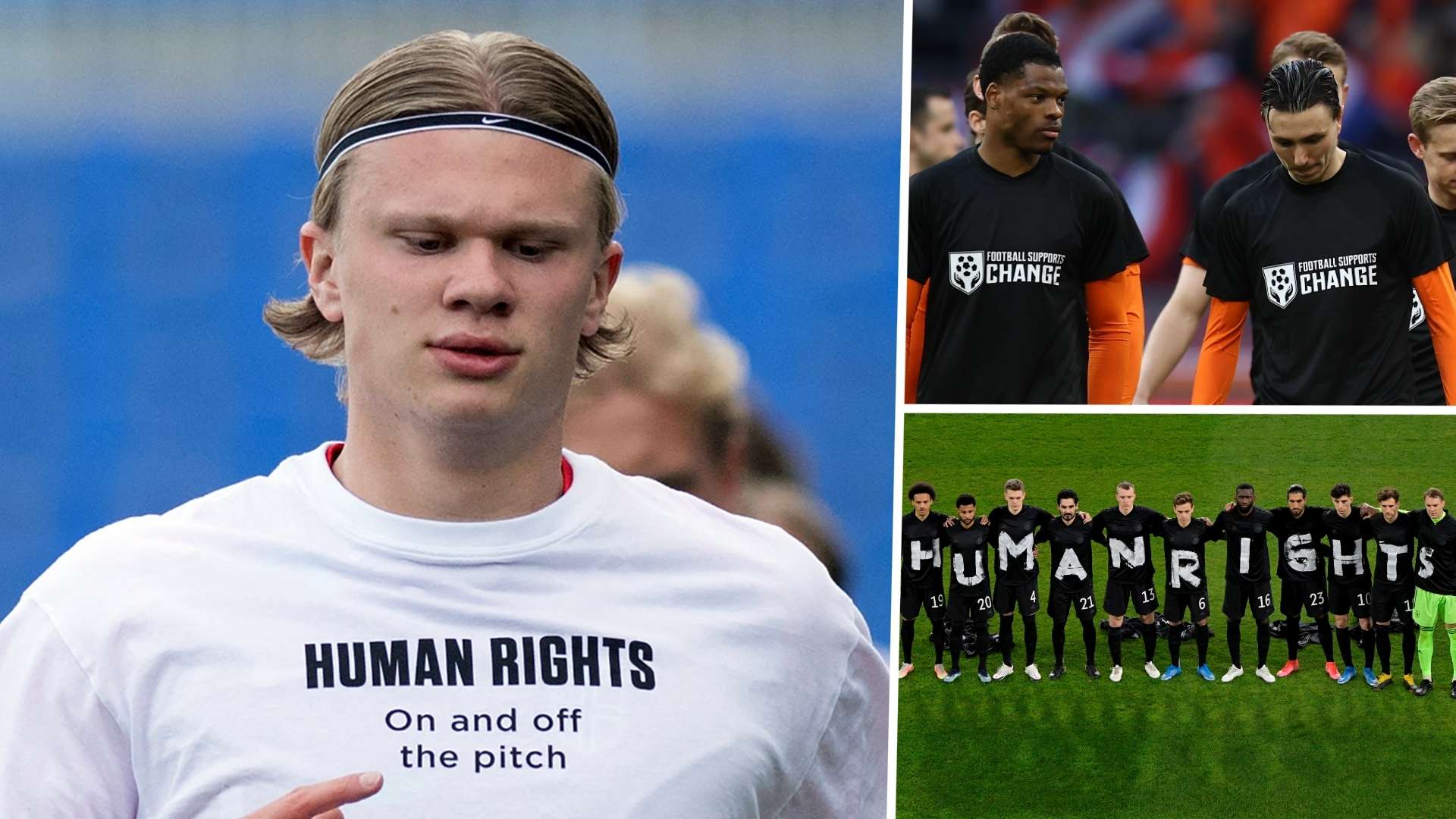The likes of Norway and Germany were involved in protests directly related to Qatar's hosting of the 2022 World Cup during their March 2021 international qualifying matches, taking a stand in support of human rights.
So, why are they protesting Qatar, which other teams were involved and what's the situation been like? Goal takes a look.
Why are teams protesting Qatar?
Teams are protesting to speak out against alleged human rights violations taking place in the country due to host the 2022 World Cup.
There have been multiple reports of violations against migrants in the country, with The Guardianrevealing in February that over 6,500 migrant workers from India, Pakistan, Nepal, Bangladesh and Sri Lanka have died since Qatar won the bid to host the tournament in 2010.
They found that Qatar's intense summer heat and the intense working conditions are likely to have played a significant part in the deaths.
Though the report states that death records in a country are not categorised by occupation, Nick McGeehan, a director at FairSquare Projects (an advocacy group that advocates for labour rights in the Gulf) stated that there is a very high possibility that the workers who died had been working on building for the 2022 World Cup.
“A very significant proportion of the migrant workers who have died since 2011 were only in the country because Qatar won the right to host the World Cup,” McGeehan said.
Which teams have staged protests?
Norway, the Netherlands and Germany were involved in protesting Qatar's human rights record before their World Cup 2022 qualifiers in March.
Norway started the protest in their match against Gibraltar on March 24, wearing shirts in the warm-up which read: "Human rights on and off the pitch" before they faced Gibraltar and Turkey in World Cup qualifying.
Germany donned t-shirts that spelled out "Human Rights" before they played Iceland.
Norway coach Stale Solbakken revealed the reasoning behind his team's protesting, saying that the goal was to "put pressure on FIFA to be even more direct, even firmer with the authorities in Qatar, to impose stricter requirements".
Netherlands boss Frank de Boer said similar sentiments and even addressed the question of whether or not his side would protest the human rights violations even further by simply refusing to participate in the 2022 tournament.
"A lot of attention is now focused on whether we should go there if we qualify," he said after the game.
"It is right to ask that question. Everyone knows that what is happening there is not good.
"Human Rights Watch and Amnesty International have said that if we go there, we can better promote the cause."
What have FIFA said?
A spokesperson for FIFA said in a statement, along with evidence: “With the very stringent health and safety measures on site … the frequency of accidents on FIFA World Cup construction sites has been low when compared to other major construction projects around the world."
What have Qatar said?
Qatar's Supreme Committee for Delivery and Legacy (SC), who are responsible for delivering the infrastructure for the 2022 World Cup, have issued the following statement:
"We have always been transparent about the health and safety of workers on projects directly related to the FIFA World Cup Qatar 2022. Since construction began in 2014, there have been three work-related fatalities and 35 non-work-related deaths. The SC has investigated each case, learning lessons to avoid any repeat in the future. The SC has disclosed each incident through public statements and or Annual Workers’ Welfare Progress Reports.
"Preparations for the first FIFA World Cup to be held in the Middle East and Arab world have already brought significant benefits to workers on SC and non-SC projects in Qatar. These include significantly improved accommodation facilities, the provision of electronic medical records and comprehensive medical checks, innovative heat stress mitigation plans, extensive training and upskilling programmes and a guarantee from SC contractors to reimburse USD $30m+ in illegal recruitment fees to 48,883 SC and non-SC workers.
"With less than two years until the tournament begins, we will continue to use this opportunity to deliver sustainable change and leave a meaningful legacy beyond 2022."

